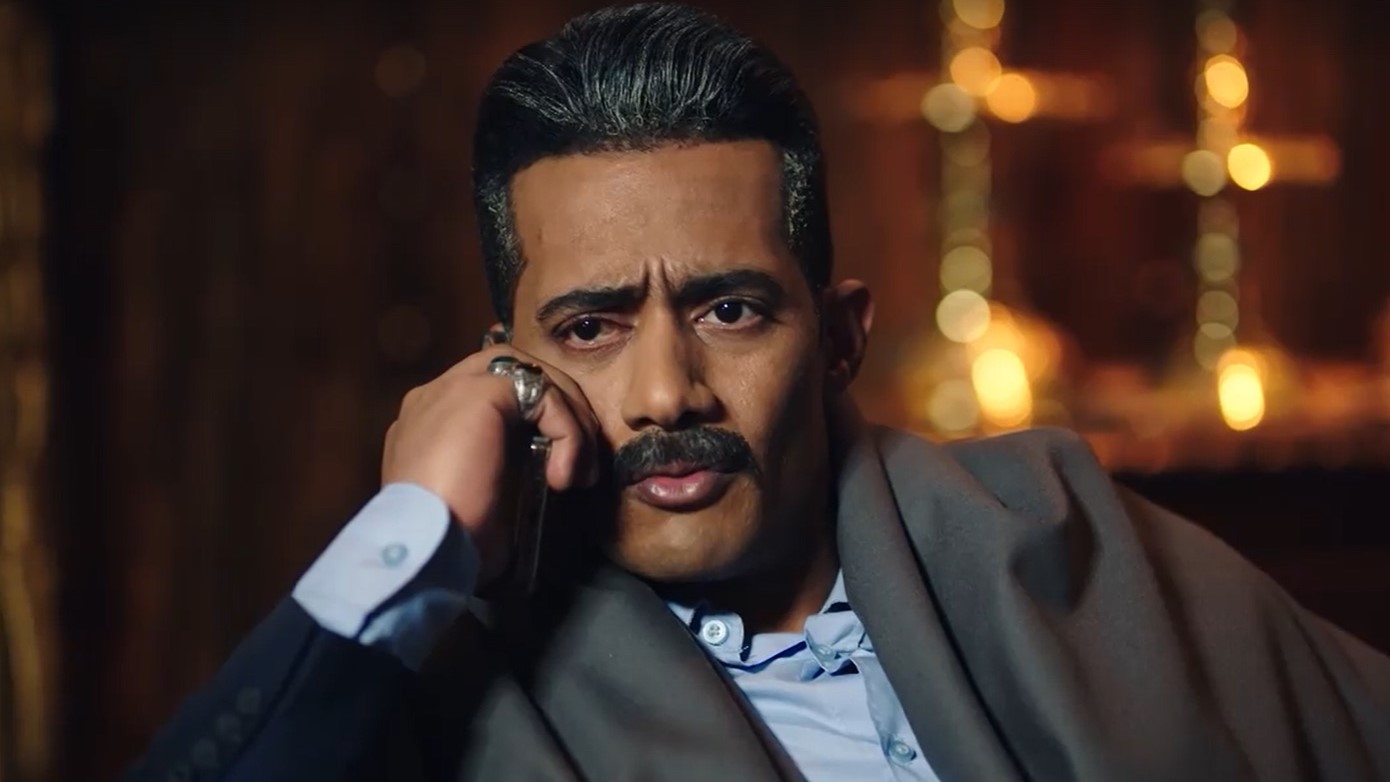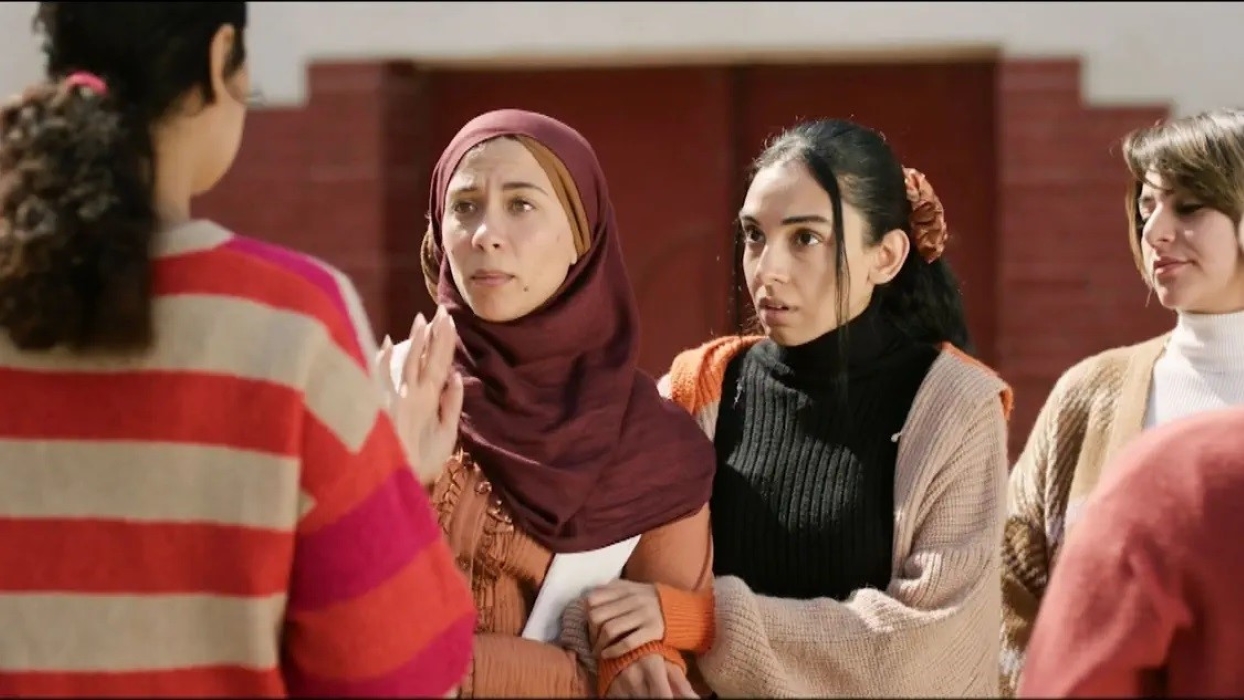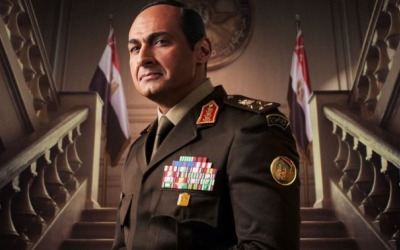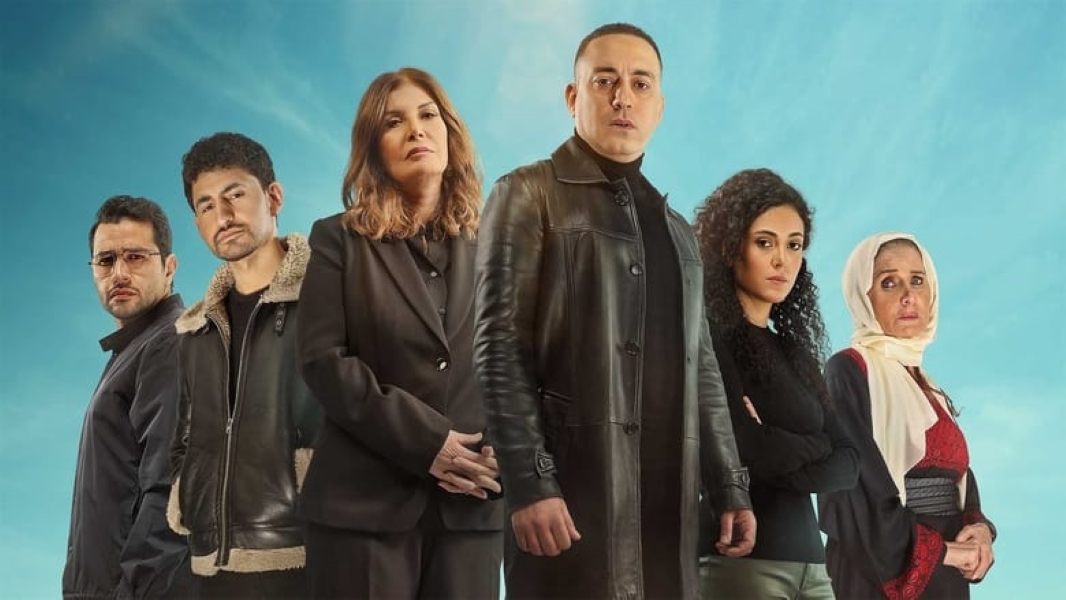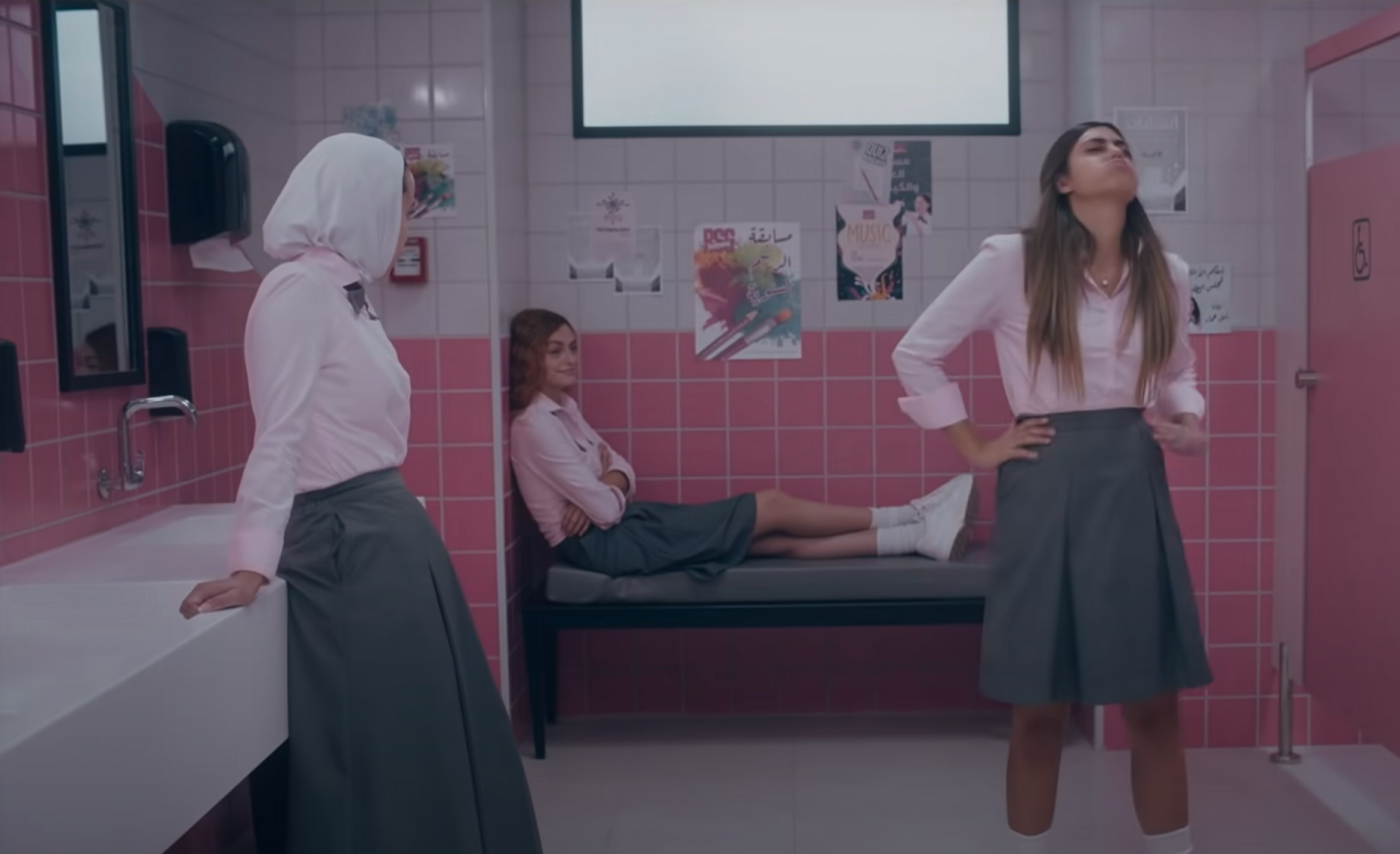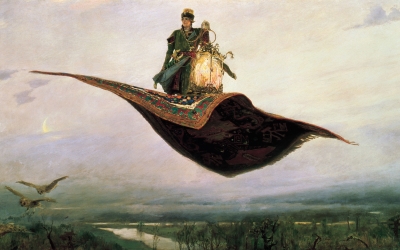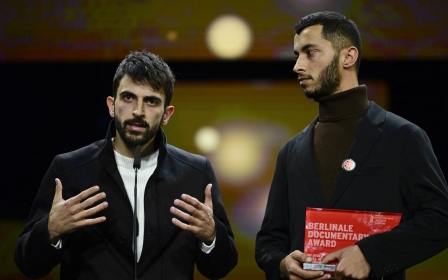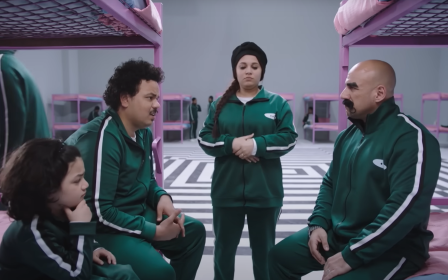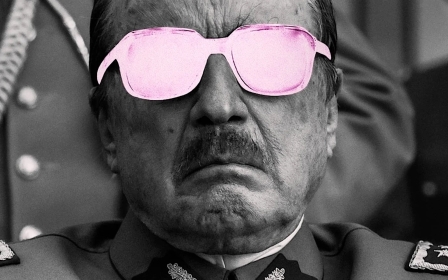Between fantasy and distorted history: Six developments in Arab TV this spring
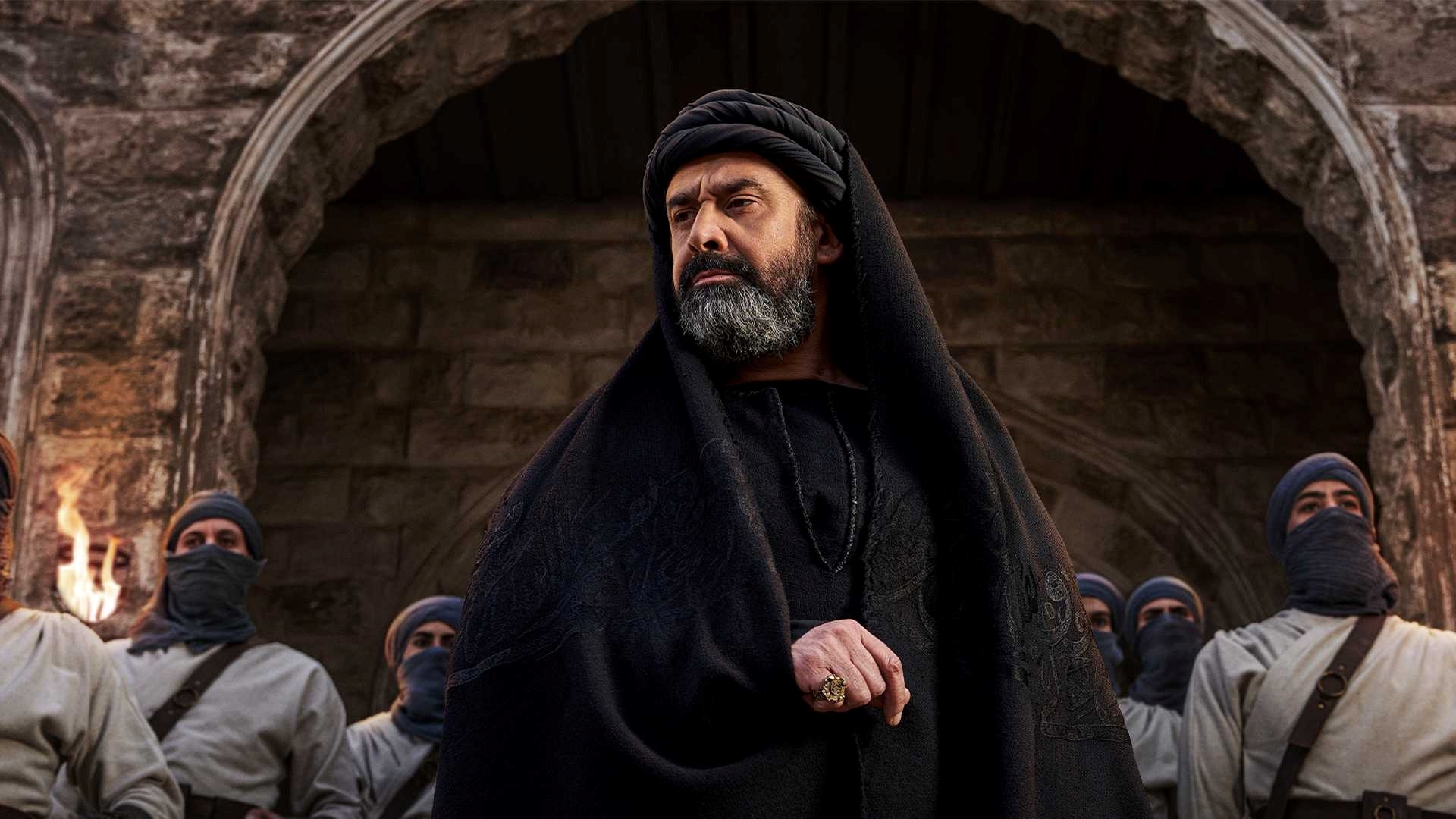
Spring 2024 promised to be a blockbuster period for Arab TV, with Netflix preparing its strongest Arab slate since 2021, Amazon releasing its first Arab production, and MBC, the region’s leading TV producer, promising a feast for the Ramadan season.
Yet reality in the Middle East has overshadowed any escapist pull in fiction.
The conflict in Gaza looms large over the Arab entertainment industry, resulting not just in scaled-back festivities but a sombre mood overall.
Compounding the impact of the images coming from Palestine is the effect of economic downturns in various Arab states, such as Egypt, Lebanon and Tunisia.
Add to that unrelenting censorship and Saudi Arabia’s encroaching monopolisation of the Arab TV landscape, and the 2024 spring TV season was the most dire in recent memory, reeking of creative bankruptcy and storytellers unsure how to navigate the political and social landscape of a region that continues to be in turmoil.
Stay informed with MEE's newsletters
Sign up to get the latest alerts, insights and analysis, starting with Turkey Unpacked
Peak TV has, as Indiewire put it in January, “finally unpeaked”, not just in the US, but worldwide.
The Arab world is no different, and there’s a general feeling that the medium is, perhaps for the first time this century, running on empty, be it in the limitations of formal and aesthetic invention, or in the stagnation of its storytelling.
The 15- and six-episode formats, instead of the familiar 30-episode configuration, have injected many Arab serials with much-needed vitality, yet did not prove to be the saving grace.
A more pointed engagement with reality produced some of the better works of the year, although censorship thwarted them from soaring.
Storytellers are unsure how to navigate the political and social landscape of a region that continues to be in turmoil
The nurturing of promising young Arab talent by producers and executives, away from the American influence, is starting to pay dividends with the formation of a new Arab aesthetic, although it hasn’t fully flowered yet.
Arab TV is in flux. The hunger for Arab content remains insatiable, but the medium has hit a snag this year, compounded by hesitation over where to go next.
Here are the six talking points of the spring and Ramadan TV season:
1. Arab TV misses its king
Gaafar El Omda was not just the biggest TV hit of 2023, it was an unrivalled cultural phenomenon, a rare Arab series transcending demographics and class, which attracted enormous viewing figures across the region.
This year’s roster did not offer any work that came close to capturing the sweeping success of the Egyptian series, demonstrating how its star, Mohamed Ramadan, who was conspicuously absent this season, has become the most bankable front-man in Arab TV today.
Gaafar’s creator, Mohammad Samy, was back this year with N'eama El Avoccato (N'eama, the Lawyer), another tale of revenge, centering on an ambulance-chasing female lawyer who lands the biggest case of her career, only to be betrayed by her conniving husband.
Starring Samy’s wife, Mai Omar, N'eama offered ingredients familiar from Samy’s past work - sensationalistic plot, crass melodrama, and a polished working-class milieu.
Its limited success proves once again that Samy’s addictive tall tales are reliant on Ramadan to achieve a wide resonance.
2. TV catches up with reality of the Arab street
Having spent most of the past 13 years avoiding the reality of life in the region, Arab TV took the brakes off this year and at last began to immerse itself in the Arab street.
Egypt led the way with two of the most urgent series in recent years: A’la Nesbet Moshahda (Highest Viewing Rates), a story about young, working-class, female TikTokers trying to lift their families out of the devastating economic doldrums; and Selat Rahem (Blood Relations), about an anaesthetist racing to find a surrogate uterus after his wife suffers a miscarriage.
The first is possibly the most austere Egyptian TV drama in recent memory: a damning portrait of Sisi’s neoliberal politics, which have widened the gap between rich and the poor and amplified poverty.
The characters are irritatingly one-dimensional, while the moralising ending is downright regressive, denying the young female protagonists the freedom of their bodies.
But the script does at least condemn the decline of Egypt's welfare state, while casting the classist, apathetic regime in the role of invisible antagonist.
Selat Rahem is arguably the best series of the season: a rich, morally convoluted study of frail masculinity, the impotence of religion, and the stress of living in a shadow society where anything goes.
Most daringly, Selat Rahem is an unapologetically pro-abortion story: a work that deviates from accepted Egyptian morality and challenges the rigid, impracticable religious foundation of its society.
The fact that the series was produced by veteran Lebanese producer Sadiq Al Sabah, with little Egyptian backing, is no surprise.
Elsewhere in the region, the second season of Tunisia’s Fallujah continued its exploration of the country’s disenfranchised teenagers and broken school system.
Saudi Arabia’s Al Sharar put a refreshingly feminist twist into its look at traditional Bedouin life. Banat El Am (The Female Cousins) - Libya’s first series shown on a streaming platform - touched upon systematic dishonesty and economic ruin in its investigation into the country’s post-revolution society.
Algeria’s Al Barrany (The Stranger), meanwhile, caused uproar with its references to alcohol and drug consumption and sexual harassment in a melodrama about family dysfunction.
3. Game of Thrones-style tale of the Assassins
With the popularity of Sisi’s regime at an all-time low at home, the Egyptian government, for the first time in many years, spared us the countless military and police propaganda shows that have populated the airwaves ever since he officially took the reins in 2014.
The desire for propaganda did not subside, however.
The United Media Services (UMS) - the military intelligence-affiliated conglomerate - embarked on its most ambitious project to date: a multimillion-budgeted historical epic charting the rise of the Order of Assassins, the medieval Ismaili sect regarded by some western historians as the world’s first Islamic terrorist group.
Starring Karim Abdel Aziz in the role of the order’s founder, Hasan-i Sabbah, El-Hashasheen (The Assassins) is lavish in production values, visually striking, and dazzling in its perfectly calibrated performances.
The razzle-dazzle aside, El-Hashasheen is a story that desperately wants to be Game of Thrones in its intricate politics and brutal bouts of surprising violence.
In a tale based largely on unreliable European accounts about the order, the Assassins come off as a blatant stand-in for the Muslim Brotherhood, the regime’s staunchest enemy: a politically minded, insubordinate group who abandoned the teachings of Islam and strayed, due to their lust for power.
Any intellectual engagement with theology has no place in a simplistic work of El-Hashasheen’s ilk, wherein the complex role of violence in Islam is completely painted over.
Sisi’s regime remains adamant about promoting a unified, one-dimensional and “moderate” version of Islam, less extreme in its dogma but equally as self-serving and conservative as its enemy’s creed.
El-Hashasheen is a cunning TV drama, and arguably the regime's first successful piece of propaganda.
4. Palestinians' plight becomes Sisi propaganda
Far less successful as propaganda was Maliha, a Palestinian family epic starring Amir El-Masry of The Crown and Limbo fame, which went into production a few weeks before its broadcast during Ramadan last month.
Also produced by UMS, the series follows a Palestinian family from Gaza forced to resettle in Libya after the Second Intifada. In the wake of the Arab Spring and the Libyan revolution, the family attempts to return to Gaza, only to find itself in limbo in Egypt.
Their time in Egypt becomes a pretext to flaunt the kindness and hospitality of Egyptians, while promoting the bravery of the self-sacrificing army men who take in the eponymous Palestinian protagonist and her family with arms wide open.
Through a series of documentary footage, the series charts the long history of the Palestinian displacement and Israel’s plundering of the Arab lands. Although bringing nothing new to the table, the footage does present a valuable capsule of Palestinian history to mainstream and young viewers.
This segment is its sole valuable facet, for the real intention of Maliha is to firstly act as a reminder of the destructive repercussions of the Arab Spring and revolutions, and to cement the notion that the Sisi regime is the heroic defender of the Egyptian cause.
It also emphasises that the rightful place of Palestinians is in their homeland and not in any other neighbouring Arab countries. These memos are delivered in an artless, cringeworthy narrative overflowing with contrivance.
The growing competition from both independent and non-Egyptian producers is forcing the UMS to think less politically and more commercially; yet, judging by both Maliha and El-Hashasheen, the regime remains intent on exploiting TV dramas to promote its policies.
5. Shahid outshines Netflix and Amazon
Netflix and western streaming platforms were once heralded as the saviour of Arab TV: major players who were supposed to give Arab storytelling a lifeline away from state censorship.
That did not prove to be the case, and as time goes by it becomes apparent that Netflix and its cohorts continue to have no tangible strategy in the region.
Amazon Prime has started dipping its toes into Arab drama. Prior to Ramadan, the American company released its first Arab series with The Last Round, a terribly conventional boxing drama headed by Egyptian action star Ahmed El Sakka that no one seems to have paid much attention to.
Next in line for Amazon is Self Modulation, a Lebanon-set dramedy about a Syrian refugee living illegally in Beirut.
The 2024 line-up for Netflix, meanwhile, is largely comprised of sequels to the few successful shows it has churned out over the past five years.
Season two of hit Jordanian series AlRawabi School for Girls was released right before Ramadan, with little fanfare this time around.
Up next were season two of Finding Ola, the popular Egyptian comedy starring Tunisian-Egyptian bigwig Hend Sabry; season two of Kuwaiti stock exchange thriller The Exchange; a new season of acclaimed Saudi animated satire Masameer; a third season of the critically mauled reality TV show Dubai Bling; and first seasons of an Emirati dating show titled Love Is Blind: Habibi, along with Egyptian crime drama Echoes of the Past, a remake of the 2021 Mexican hit Who Killed Sara?
All series rely on tried and tested formulas, showing no ambition and little desire to compete with MBC’s Shahid, the region’s leading platform for Arab content.
Over the past three years, Shahid’s credentials have grown, thanks to an impressive lineup of original and daring dramas from disparate parts of the region.
The dynamics and policies of Shahid remain unclear, but its work thus far is proof of a deeper understanding of the Arab market than Netflix commands.
Netflix remains the region’s subscription video on demand leader, but it is projected to be overtaken by Shahid by 2029, according to Digital TV Research.
6. The finest satire and entertainment
Amid the copious disappointments of the spring and Ramadan season, two unlikely series emerged to inject Arab TV with fresh blood and change the parameters of what Arab drama might achieve.
The first is Egypt’s Gawdar, a new reboot of the hugely popular One Thousand and One Nights franchise, a staple of 1990s Arab TV.
Yasser Galal is the titular son of a merchant, who embarks on a series of outlandish, dangerous adventures to protect his family trade. A grand fairytale replete with some of the most cutting-edge special effects featured in Arab TV, Gawdar takes inspiration from Arab folklore to craft a delicious spectacle of panache and pure escapism.
There is no social subtext to Gawdar, no political agenda or profound themes. It’s entertainment with a capital E, and the most fun this writer had watching Arab TV this year thus far.
Radically different in intention, form, scope and tone is Tunisia’s Ragouj, the latest work by genre maverick Abdelhamid Bouchnak. The series centres on the eponymous imaginary country, an exaggerated version of Tunisia with the same clueless, inept dimwits ruling the nation.
Touching upon debilitating bureaucracy, media corruption, pervasive misogyny, and the eternal economic devastation, Bouchnak uses restrained yet biting black comedy to draw an autopsy of an ailing society governed by buffoons: a structure that has no wish or capability to change.
Bouchnak’s comedy is acerbic, but not contemptuous; critical but not mocking; angry but not nihilistic. In a year populated with mediocre, irrelevant comedies, Ragouj, by a long margin, is the smartest, most potent Arab satire of the season, cementing Bouchnak’s reputation as one of the most original voices in Arab TV.
Middle East Eye delivers independent and unrivalled coverage and analysis of the Middle East, North Africa and beyond. To learn more about republishing this content and the associated fees, please fill out this form. More about MEE can be found here.
